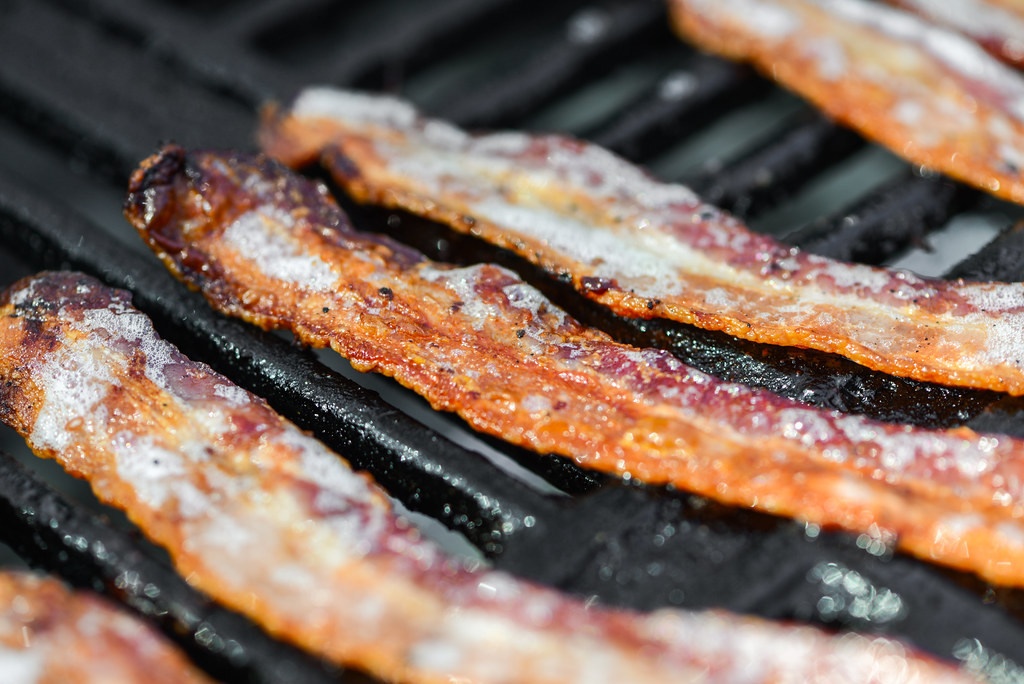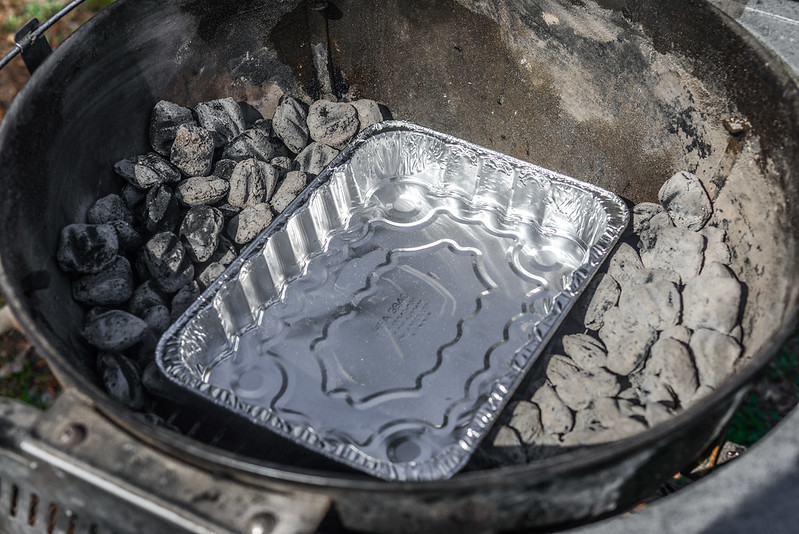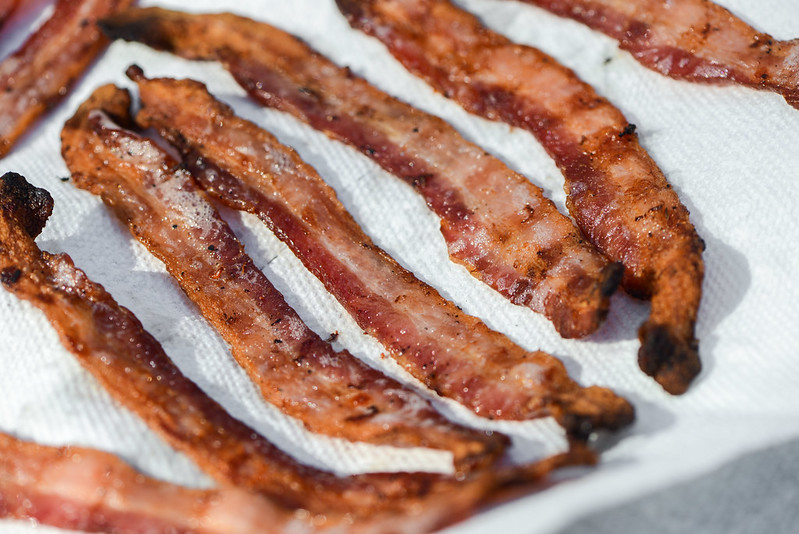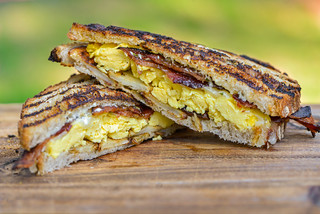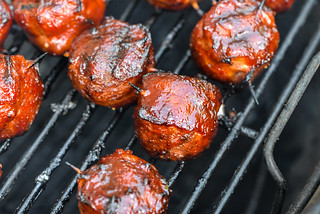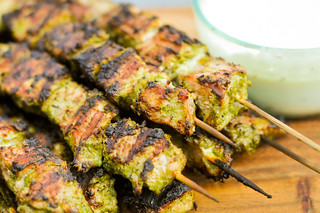Grilled Bacon
I was in the process of prepping a post I'm excited to share that involved some blackened burgers topped with pepper jack, bacon, and remoulade. In working out the details of the recipe, I began elaborating on my method to grill bacon and came to the realization that I had never really shared this before on the blog. So I put that burger recipe aside for a week to bring you this special presentation of something we should all know how to do—grill bacon.
The benefits of grilling bacon are so numerous that I think it should always be considered as a part of the decision making process on the best way to cook it on any give day. The grill affords the ability to cook more bacon at once, saves the house from the bacon smell that seems to last for days (although that's not a bad thing in my mind, but can be point of contention with my better half), and avoids the usual splatter mess requiring extra cleaning afterwards. Utilizing the grill doesn't come without its challenges though, and first and foremost is avoiding flare-ups that can quickly consume and kill the bacon.
Flare-ups occur from fat dripping onto the hot coals and igniting, and bacon has a whole lot of fat to make the happen. So the best prevention method is to not have the bacon sit over the coals at all. To achieve this, I use a three-zone split fire, where the lit coals are arranged in two even piles on each side of the grill grate, with the center left empty. I then rest a foil pan between the coals to catch the rendering fat to both add extra protection against flare-ups and make clean-up a snap.
Once I have the coals set up, I arrange the bacon on the grill grate so they're set directly over the drip pan. Here I got thirteen pieces of thick-cut bacon on at once—a number I can't come close to achieving in a pan, and still can't match using a sheet pan in the oven. So when making bacon for a crowd, as I was doing this day, the grill can really be a huge boost and time saver.
Some times when grilling bacon, I think it appropriate to give it a little extra seasoning by way of a barbecue rub. The smokiness of the bacon tends to still dominate the flavor in the end, but the rub adds a barbecue complexity that tastes fitting for an item cooked using a live fire.
Once the bacon is all on the grill, I'll set the cover in place and then wait until the bacon starts to shrink and develop little pools of grease. Depending on how hot the grill is, this can take from around four to eight minutes. At this point I'll flip the bacon, cover again, and let it continue cooking.
This time I'm looking for the bacon to be completely cooked to my liking. Usually this is when it's well browned and has gained some crispness, but not totally crunchy yet—if it's already totally crisp on the grill, it'll be too dry and brittle after resting.
Once done, I place the bacon a paper towel lined plate to let it drain of excess fat. During the three to five minutes it takes for the bacon lose those pools of grease, it will crisp up to have a perfect tender-crisp consistancy.
And there you have it, a pack of bacon grilled up all at once with no mess or lingering odor indoors, making this method a really great option for cooking the stuff. You may notice the edges closest to the fire are a bit drier and crispier than the rest of the strip. This personally doesn't bother me, but it can certainly be avoided by either using fewer coals or not as blazing hot of fire as I did—this batch we grilled using an entire chimney of freshly lit coals. So now that I have this bacon-grilling process documented, I can continue on with the regularly scheduled program of delicious blackened burgers, so remember to tune in next week!
You Might Also Like
Comments
-
Best Smokers Info Good article, thanks for sharing!
-
Best Smokers Info Good article, thanks for sharing!
